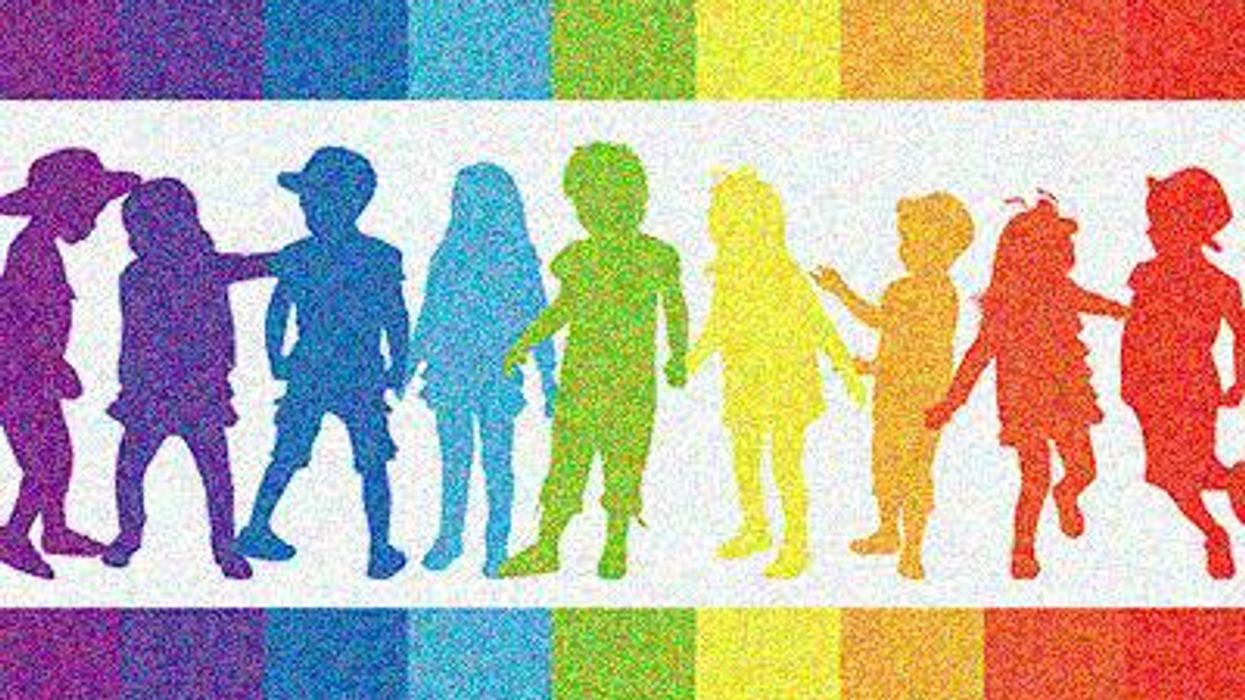No one knows what percentage of the population is transgender, but it is likely less than 1 percent. Even still, transgender issues have risen to a place of prominence in public discourse of late. The news now regularly carries stories of transgender individuals, ranging from tragic deaths of youths and individuals of color to commercial success of television programs like Transparent to stories of transgender children fighting for the right to attend school and use facilities such as restrooms or locker rooms in alignment with their identities.
While this media exposure holds promise to raise awareness, reduce stigma, and increase visibility of transgender individuals, there has been a dearth of scientific research on this community. We started the TransYouth Project to address some of these gaps in the research literature, with a particular focus on the lives and identities of transgender children and their families.
Our team often talks to people about transgender children and finds a surprising amount of misunderstanding. The concept of a "transgender child" is perplexing to many people, in part because most people's experience -- at least those who are cisgender (i.e., not transgender) -- is that gender is biological sex. Most children who are assigned female sex at birth will identify as girls during childhood, most children assigned male sex at birth will identify as boys.
Many cisgender individuals, regardless of whether they are heterosexual, bisexual, lesbian, or gay, invariably assume this has to be true, and we have heard countless opinions that children who identify as a different gender than their sex assigned at birth must be pretending or somehow confused. This question was the driving force behind the first publication of the TransYouth Project, upcoming in Psychological Science and recently featured in The Advocate: Are transgender children actually pretending or confused, or might they be reporting a deep-seated and clear gender identity?
To address this question, we recruited a group of 5- to 12-year-old children who identified as a gender other than their assigned sex, and who live their lives congruent with their gender identity. That is, these kids dress according to their inner gender experience, and they choose new names and corresponding pronouns. Although this may seem young, many of the transgender children in our study persistently and consistently claimed that their true gender identity was different from their assigned sex, beginning by about 2 to 3 years of age. This might strike many as early, but in fact, this is the very age when cisgender children in our culture often assert their gender identity.
We compared the responses of our transgender child participants to the responses of their cisgender siblings and to a group of unrelated cisgender peers. What we found was striking. Our transgender participants' responses looked indistinguishable from those of cisgender children -- but congruently with their gender identity, not assigned sex. This means that, across multiple tasks, trans boys (assigned female sex and identifying as boys) responded the same as cisgender boys (assigned male sex and identifying as boys); trans girls responded the same as cisgender girls.
The most notable finding from our study, though, is that this pattern was true for traditional explicit measures (e.g., questionnaires), where individuals can easily control their responses, and for implicit measures (e.g., computerized tasks using reaction time), where individuals cannot easily control their responses.
Overall, our transgender child participants did not seem to be pretending or confused; their responses about gender identity and gender understanding were indistinguishable from those of the cisgender children. They were, instead, apparently reporting bona fide, deep-seated gender identities. They did so to the extent that we could not tell who was transgender or cisgender just by looking at their data.
In other words, our scientific research supported what many transgender children and adults had been saying all along.
(RELATED: Read the Story of One Family Taking Part in the TransYouth Project)
Unfortunately, transgender people in the United States have a history of shockingly tragic outcomes. More than 40 percent of transgender individuals attempt suicide, which is nearly nine times the rate of the general population. Their rates of depression and anxiety are also vastly higher. They are overrepresented in homeless and jobless populations, and nearly all transgender people in a recent study reported being discriminated against at work.
Can this reality be reversed? We believe so, and the scientific community -- historically not supportive of the trans community -- will play a key role. We also believe that the transgender and gender-nonconforming kids in our studies going forward, true pioneers as the first cohort of children being supported from early in development, will hold the key to answering this question.
At the TransYouth Project, we are currently seeking funding to support longitudinal efforts to follow more than 150 of these children over time, to determine how familial support and changing societal attitudes may facilitate increasingly positive trajectories for trans individuals.
We don't yet know the long-term outcomes for transgender children who openly express their gender identity and who receive full familial support, as our pioneering children do. In transgender teens and adults, familial support is associated with better mental health outcomes. In a recent Dutch study, socially supported transgender teens showed health and well-being at least as good as that of their cisgender peers. Thus, the lived transgender experience may not lead to observed negative outcomes; rather, societal stigma does. This is congruent with research indicating that being gay, lesbian, or bisexual is not associated with negative outcomes -- the experience of societal discrimination is.
Greater understanding may help people like 17-year-old Leelah Alcorn. In December, Leelah walked in front of a semi and was killed. Her suicide note stated, "My death needs to be counted in the number of transgender people who commit suicide this year. I want someone to look at that number and say 'that's fucked up' and fix it. Fix society... The only way I will rest in peace is if one day transgender people aren't treated t. he way I was, they're treated like humans, with valid feelings and human rights."
Transgender individuals, even children, are clear about who they are. Keep the trans community in your activism focus. Support them. Heed Leelah's call: Fix society.
NICHOLAS R. EATON, KRISTINA OLSON, and AIDAN KEY helm the TransYouth Project, which researches human gender development at the University of Washington. The project has started the first large-scale, national study of socially-supported transgender kids. A paper on their findings, titled "Gender Cognition in Transgender Children," is forthcoming in Psychological Science.
NICHOLAS R. EATON is an assistant professor of psychology at Stony Brook University.
KRISTINA OLSON is an assistant professor of psychology at University of Washington.
AIDAN KEY is the founder and director of Gender Diversity.




































































Charlie Kirk DID say stoning gay people was the 'perfect law' — and these other heinous quotes